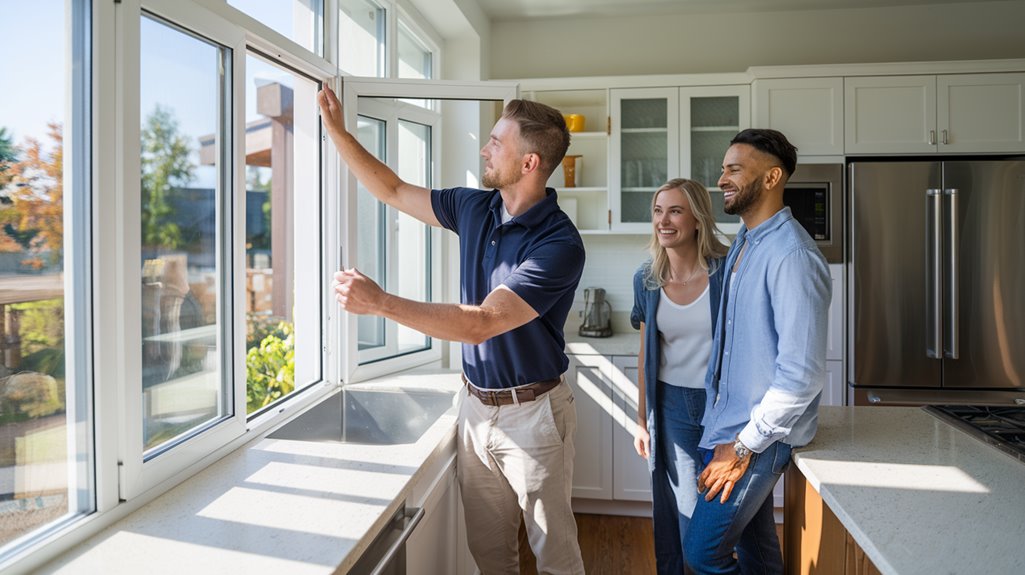When you buy a home, your chance to check it out is very important. You want to find any problems early so you can save money. First, find a good home inspector. Pick someone with a license who knows what they're doing. Do this within two days of agreeing to buy the house.
You'll have about a week to look at everything. The inspector will check the base of the house, the pipes, the wiring, and the heating system. They look for bad signs like cracks or water marks.
After you get the report, you can ask the seller to fix things or lower the price. If you find big problems that would cost more than 10% of the house price to fix, you can say no to buying the house. When you know how this works, you can get a better deal and protect your money.
Ready to start building equity in your own Michigan home? Get your personalized home loan quote today.
Understanding Your Inspection Timeline
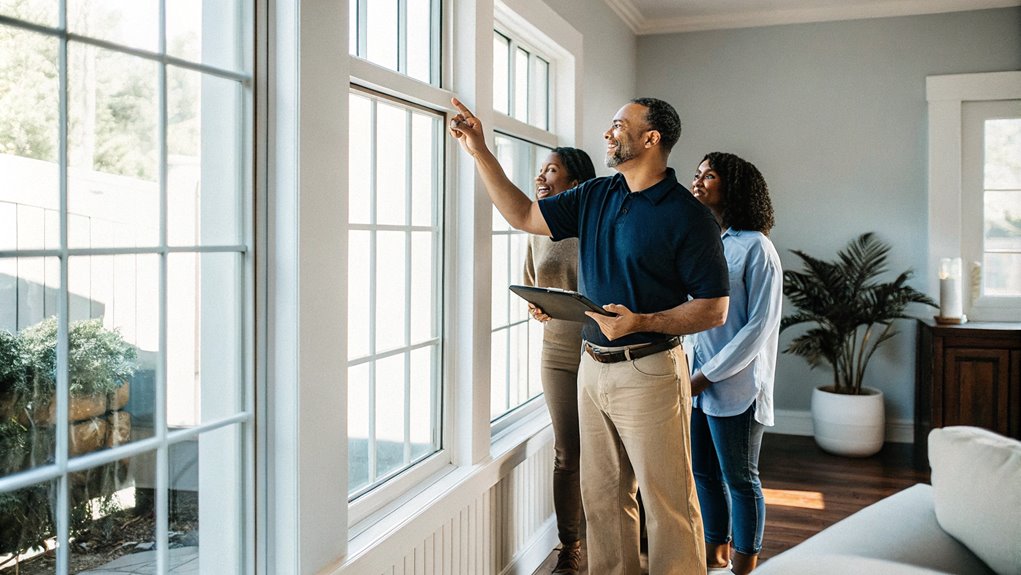
When you buy a home, you get time to check it out. This starts right after you and the seller sign the papers. Most people get 7-10 days to look at the house.
You should call an expert to check the house within two days. The expert will write a report about what they find. You'll get this report in about two days. Then, you and your agent can read it and see what needs to be fixed.
If the house needs fixes, you can ask the seller to help. But you must ask before your time runs out. If you wait too long, you might lose your chance to ask for fixes. You could even lose the money you put down to buy the house.
Remember these simple steps:
- Call the home expert fast
- Read the report when you get it
- Ask for fixes if you need them
- Do it all before time runs out
Michigan residents, unlock the door to your new home. Request your home loan quote from Treeside Financial today.
Choosing the Right Home Inspector
Pick a good home inspector to help you look at your new house.
Make sure they've a license and belong to groups like ASHI or InterNACHI.
Ask if they've insurance to keep you safe if they miss something.
Talk to people who used them before.
The more years they've done this job, the better.
You want someone who knows how to spot every little problem in a house.
Research Inspector Credentials First
Finding a good home inspector starts with checking their background. You need to make sure they've a state license and belong to groups like ASHI or InterNACHI. These groups train inspectors to do their job well.
You might be closer to buying your home than you think
Take our 2-minute home buyer readiness quiz to see how prepared you really are – no credit check required.

Ask how many homes they've checked in your area. A good inspector will be happy to share this info with you. Make sure they've insurance too. This keeps you safe if they miss something big during the inspection.
Look at some of their old reports. This shows you how careful they're at their job.
Good inspectors also take classes to learn new things about homes and how to spot problems. This helps them do a better job for you.
Check Insurance and Experience
When you pick someone to check your home, you need to make sure they've insurance and know what they're doing.
Ask them to show you their insurance papers. This keeps you safe if they miss something big during the house check. They should have at least $300,000 in insurance.
Talk to them about houses they've checked before. A good inspector has looked at more than 250 homes. They should also have special training from groups that teach home checking.
Ask them for names of people they helped recently. You can call these people to see if they did a good job. You can also look them up at the Better Business Bureau.
Even if your house agent likes them, check them out yourself to be safe.
Key Areas to Examine
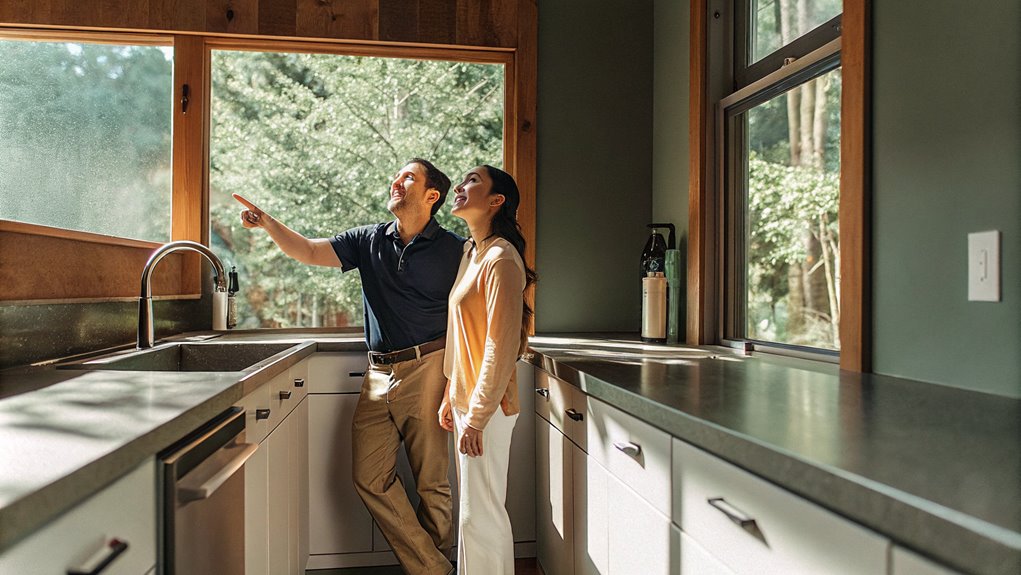
When you look at a house you want to buy, focus on the important parts that keep you safe and protect your money.
Look for cracks in the base of the house. Check if the power outlets and wires are safe. Turn on all the sinks and toilets to make sure they work well.
Test if the heating and air system keeps you warm in winter and cool in summer. Look for wet spots in the basement and near windows that could mean trouble.
Foundation and Structural Elements
Your house needs strong bones to stay safe and healthy. The most important parts are what's holding it up – like the base (we call this the foundation) and the walls.
Look for these signs that something might be wrong:
| Warning Sign | What to Look For |
|---|---|
| Cracks in the Base | Lines that go across or look like stairs |
| Wall Problems | Walls that bend or lean |
| Floor Troubles | Floors that sink or feel soft |
| Support Worries | Broken beams or posts |
| Water Signs | White marks or wet spots |
If you see any of these things, ask a building doctor (we call them structural engineers) to take a look. They can tell you if it's bad and how much it will cost to fix.
Time makes these problems worse, like a small cut that gets bigger if you don't take care of it. Finding these problems early will keep your house – and your money – safe.
Plumbing and Electrical Systems
When you look at a home, it's vital to check how water flows and if the power works right. Start by turning on each tap. Watch how fast water runs and drains. Look for any drips or leaks. Check if the hot water works well. Make sure the pipes look good and aren't old or rusty.
Next, look at how power runs in the home. The main power box should be up to date and safe. Test all wall plugs to make sure they work. Some plugs near water need special safety features.
If you see lights that flicker or smell anything burning, that's bad. Feel the wall plugs – they shouldn't be hot. Also check that the heating and cooling system has good power hooks.
HVAC and Moisture Issues
When you check your home's heating and cooling system, there are three main parts to look at: how it heats, how it cools, and how air moves through your home.
You also need to watch out for water problems that can hurt your home or make you sick.
Look for these warning signs:
- Dark spots on your walls, roof, or near windows – this can mean water is getting in
- Check how old your heating and cooling system is, if it gets regular care, and if it's the right size for your home
- Make sure warm and cool air are flowing well by feeling the air coming in and going out
- Look in your crawl space and basement for puddles, bad smells, or fuzzy green or black spots
Ask to see papers that show when the system was last fixed.
Also find out if it still has a promise from the maker to fix it if it breaks.
Red Flags During Inspection
Watch out! These problems can tell you if a home needs big fixes or might not be safe to buy.
Think of these warning signs like a stop light turning red. When you see them, stop and look closer!
| Warning Sign | What it Means |
|---|---|
| Cracks in the base | House might not be strong, costs a lot to fix |
| Water marks | Leaks hiding in walls, mold can grow |
| Floors that aren't flat | Base might be bad, floor boards broken |
| Bad wiring jobs | Fire danger, needs new wiring |
| Signs of bugs or mice | Can hurt the house, make you sick |
If you see any of these things, ask for more checks from experts. Small problems can turn into big ones that cost lots of money to fix.
Take your time to look for these issues when you check the house. You can use what you find to ask the seller to fix things or to think about if you still want to buy the house.
Documentation and Record Keeping

When looking at a house, you need to keep good notes. Think of these notes like telling the story of what you found.
Make folders on your computer to save:
- Pictures you take
- Reports from house experts
- Notes from talks with sellers
- Costs to fix things
Take clear pictures of any problems. Add a ruler in the photos to show how big things are.
Save all your emails with:
- House checkers
- Fix-it people
- The seller's helper
Write down when you talk on the phone. Put down:
- The day
- The time
- Who you talked to
- What you said
When you keep good notes, you can find what you need fast. This helps when you want the seller to fix things or when you talk about the price.
Negotiating Repair Costs
When you find problems during your home check, you need to know how much fixes will cost. Call three fix-it pros to get prices. Get the costs in writing. Show what parts and work will cost.
You have three ways to deal with home fixes:
- Ask the seller to fix things
- Get money to fix it yourself
- Pay less for the house
Here's what each way means:
When sellers fix things:
Good: The work has a promise
Bad: They might do cheap work
When you get fix-it money:
Good: You pick who does the work
Bad: You need cash ready
When you lower the house price:
Good: Deal is simple
Bad: Your loan might change
Show the seller proof of what needs to be fixed. Start with things that:
- Make the house safe
- Fix big problems
- Meet house rules
Know that sellers don't have to fix everything. Pick what matters most. Be ready to let small things go if they won't stop you from getting house money or insurance.
When to Walk Away
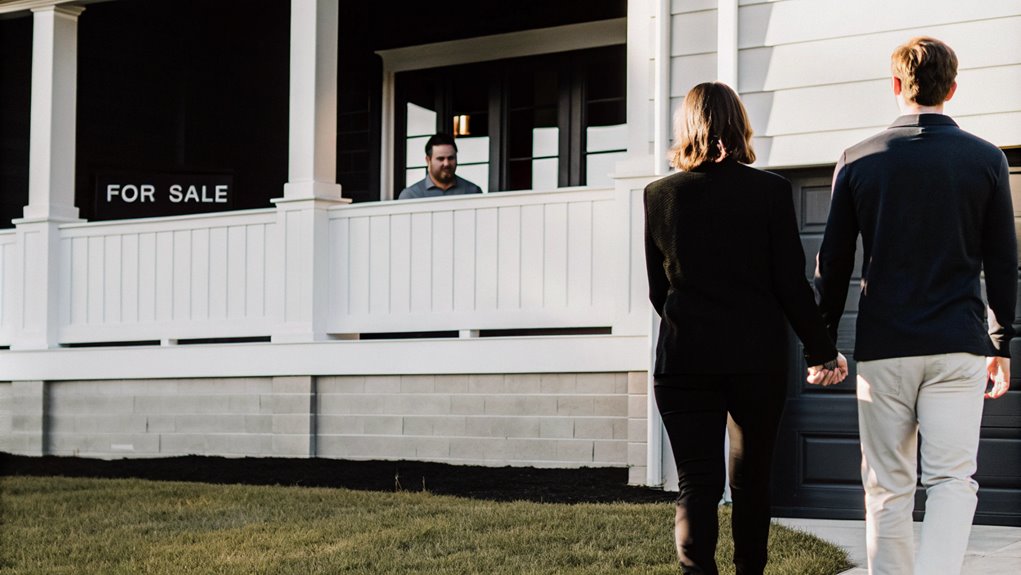
Sometimes You Need to Walk Away From Buying a House
You try hard to work things out with the seller about fixing problems. But some things you find during the home check can be too big or cost too much to fix. It's okay to stop trying to buy the house, even if you spent time and money looking at it.
Think about walking away when:
- The house has big cracks or damage from water
- Fixing the house would cost more than one tenth of what you'd pay for it
- Bad stuff like mold or unsafe air is in the house
- The seller won't fix safety problems or won't work with you on big repairs
Beyond the Standard Inspection
When you buy a home, you need more than just a basic check.
Think about getting experts to look at specific things.
A building expert can check if the base of your home is strong. A roof expert knows if your roof will last. If your home is old, get a pipe expert to look for broken pipes or tree roots growing into them.
Your home should also be safe to live in.
Test for a gas called radon that you can't see or smell. If your home was built before 1978, check for lead paint. Old homes might've bad stuff called asbestos in the ceiling or floor.
Regular home checkers can't find these things, but special experts can.
Knowing about these problems early can save you from big repair bills later.
Protecting Your Investment Long Term
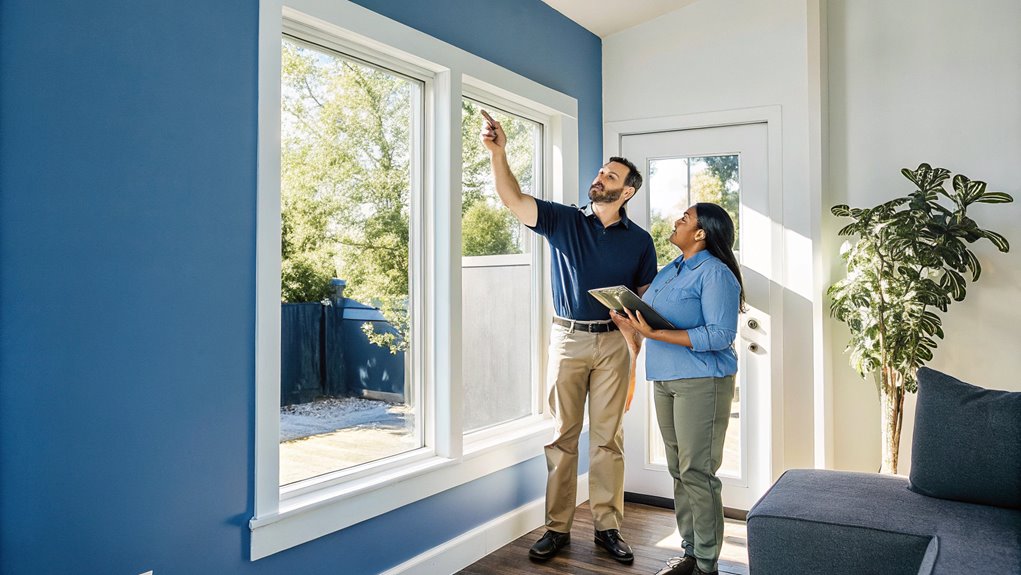
When you buy a home, you want to protect it. Getting it checked by a home inspector is very smart. They look for any problems so you can fix them before you buy. Think of it like getting a checkup at the doctor.
To keep your home safe and strong:
- Make a list of when to clean and fix things
- Keep all papers about your home in one place
- Save some money each year for fixes
- Have someone check your home every few years
These simple steps help your home stay in good shape. They stop small problems from turning into big ones. Smart homeowners take good care of their homes.

